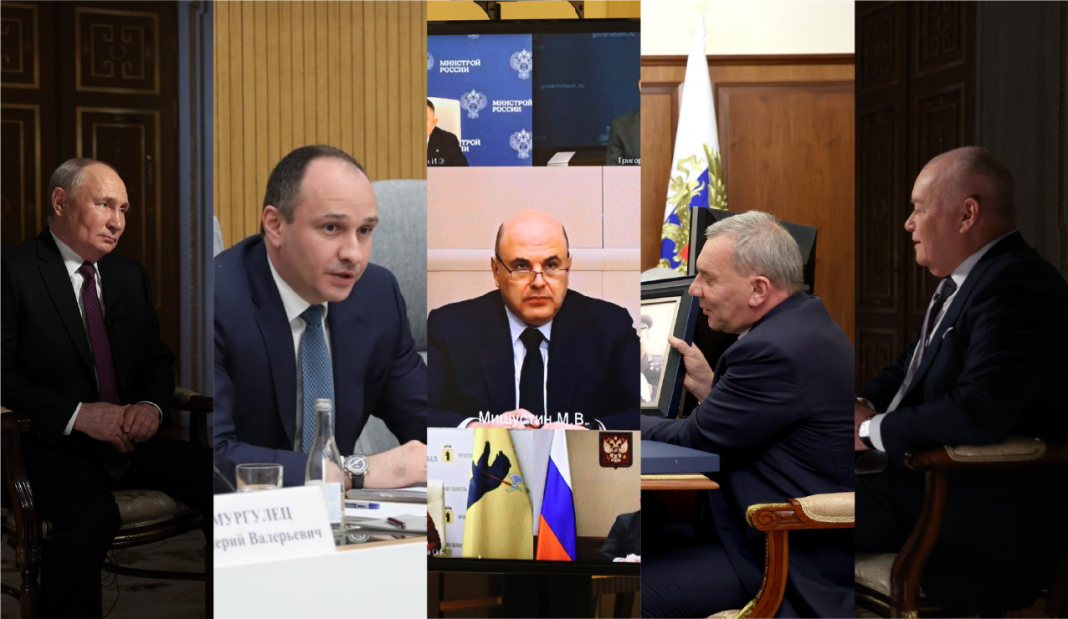This report describes the key events which significantly influenced Russia’s political, economic, and social processes.
Assessing the past week’s results, we determine the following trends:
- The most significant event of the year in the Russian Federation occurred. No fundamental changes concerning the Kremlin’s foreign policy are expected in Putin’s new presidential term. However, soon, we will be able to observe profound personnel changes in Putin’s inner circle. As for the recognition or non-recognition of the election results by the world community, Putin makes it clear that it is much more important for him to demonstrate internal consolidation. This is precisely what high “support” is associated with.
- Putin decided to back up his recent message to the Federal Assembly with real arguments from relevant ministers. The recent meeting with government members was a response to sceptics who claimed that the Address was too populist. Government members were required to confirm that they were ready to carry out everything that Putin stated. Also, based on the results of the meeting, the impression was that Putin was quite determined to replace some government members – this could be felt from the tone of the conversation and from the remarks that the Russian president made towards certain ministers.
- The appointment of the younger Kovalchuk as deputy head of the control department of the Presidential Administration of the Russian Federation (General Dmitry Shalkov) opens up not only the prospect of heading the department itself soon but also actively influencing personnel appointments and dismissals. In fact, the Kovalchuks can control all internal politics in the country (especially considering the closeness to the clan of the First Deputy Head of the Presidential Administration of the Russian Federation, Sergei Kiriyenko). In connection with the new appointment, there are rumours in Russia about the possible appointment of Shalkov to one of the critical positions in the security bloc (possibly the director of the FSB instead of Alexander Bortnikov).
This digest covers the following topics, which were the most relevant for Russia between the 11th and the 17th of March:
1. Meeting of Vladimir Putin with the head of Roscosmos, Yuri Borisov;
2. Interview with Vladimir Putin to Dmitry Kiselev;
3. Vladimir Putin’s address to Russian citizens;
4. Meeting with members of the Government;
5. Meeting with permanent members of the Security Council;
6. Appointment of Boris Kovalchuk as deputy head of the control department of the Presidential Administration;
7. Elections of the President of the Russian Federation;
8. Shelling of Russian territory and attempts to capture border settlements;
9. Press conference of Vladimir Putin on the results of the presidential elections.
This Content Is Only For Subscribers
- Meeting of Vladimir Putin with the head of Roscosmos, Yuri Borisov
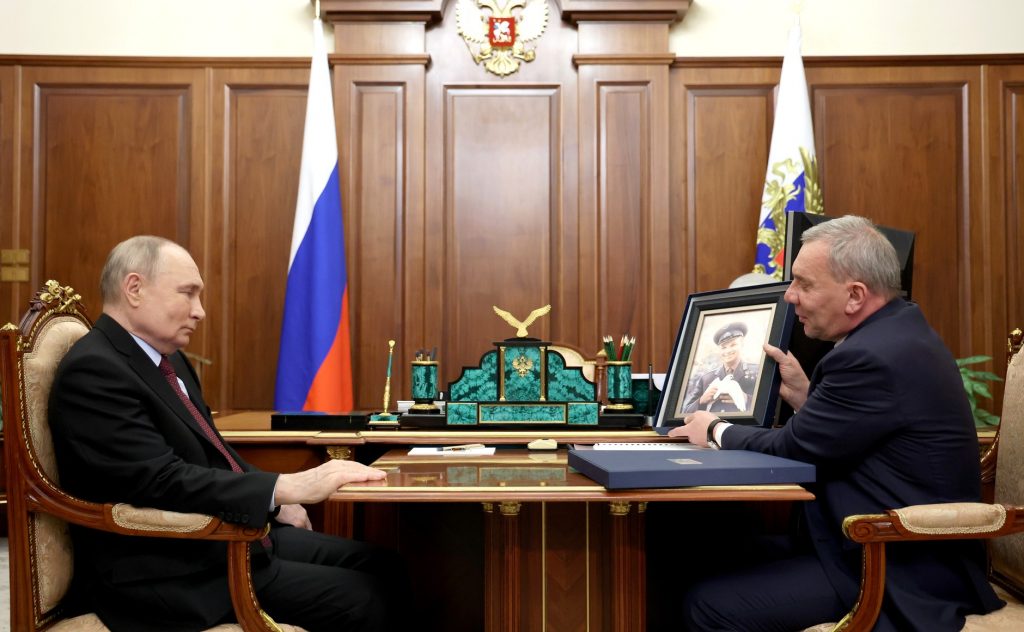
On Monday, March 11, Vladimir Putin and the General Director of the State Corporation for Space Activities Roscosmos, Yuri Borisov, met in the Kremlin. During the meeting, the parties discussed preparations for the new mission of Russian cosmonauts to the ISS and the general situation in the space industry.
Key theses:
- Borisov: “All complex tests for crew training are being completed. The crew of three. Cosmonaut from our fraternal Republic of Belarus Marina Vasilevskaya, selected from six applicants in December 2022, began training in August last year. Completed, passed all exams, and ready to fly. The ship’s commander is Oleg Novitsky. He is no longer new to space flight. And the third crew member is American cross-flight astronaut Tracy Dyson, who will replace Laurel O΄Hara, who worked for six months on the ISS.”
- Borisov: “We expect that on March 21, the Soyuz-25 spacecraft will deliver them to the ISS, and we will be waiting for them on the ground on April 2.”
- Borisov: “We are completing work on the Angara-5M launch complex on Vostochny; we hope that in the first ten days of April, we will carry out the first launch; this is a significant event for the country; the space ground infrastructure will be strengthened. You know that we already have one start in Plesetsk, and this is like a duplicate start, so this is very important for us.”
- Borisov: “We continue the series of trouble-free launches. The space meteorological constellation was recently replenished with the Meteor-M satellite No. 2–4. At the same time, 18 small satellites were launched with it, one of which was from our colleagues in Iran.”
- Borisov: “We are preparing to welcome our colleagues from the BRICS countries. Russia is the presiding country this year. We will also be meeting with our colleagues from national space agencies. We worked closely with them last year; we have great prospects. I will report to you our proposals in this regard.”
Outcomes and outlook:
For Putin, emphasising Roscosmos’s work is one of the most important links in his political and economic activities. An appeal to the space theme is an opportunity to show Russia among the most developed countries possessing space technologies. We are dealing with a continuation of a theme that has been repeated many times over the past year: Russia will increase its presence in space and exploit this theme in the future.
- Interview with Vladimir Putin to Dmitry Kiselev
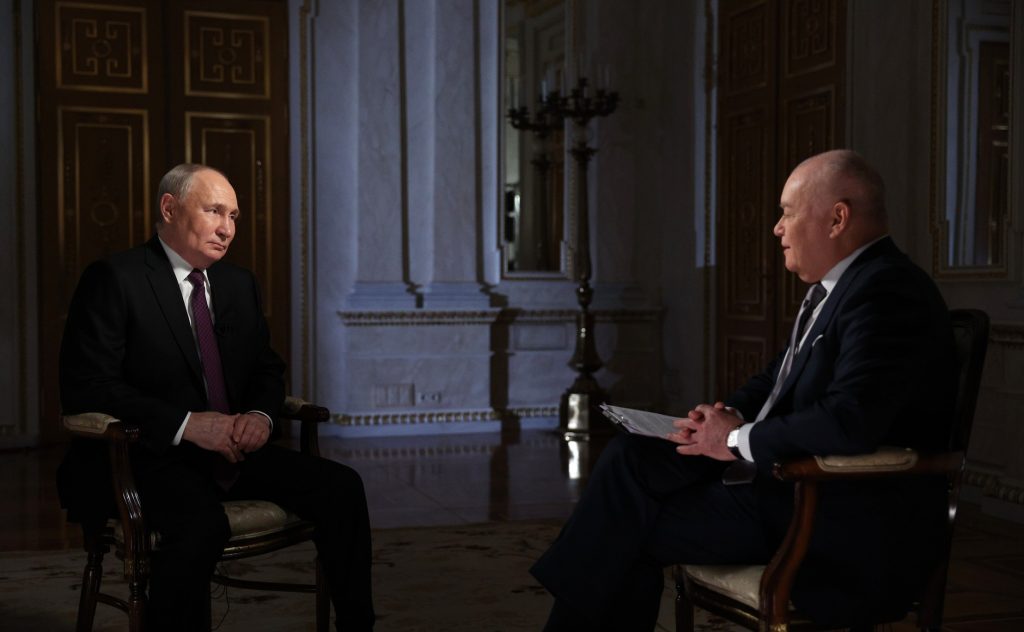
On Wednesday, March 13, Vladimir Putin gave an interview with Russian propagandist and general director of the Rossiya Segodnya agency Dmitry Kiselev. During the interview, the prospects for Russia’s economic development, which Putin announced in his recent address to the Federal Assembly, the internal political situation in the country, as well as relations with external partners and Western countries, were discussed. The Russian president also touched upon the topic of Ukraine, in particular, once again declaring his readiness for negotiations.
Key theses:
- Putin: “In 2018, we also planned to allocate an additional 8 trillion to the development of the economy and the social sphere and then increase these expenses. I think that it is quite likely that if everything turns out as the optimists from this circle of experts that I spoke about say, then we can—and should, and will be able to—increase these expenses in various areas.”
- Putin: “We are now drawing up the budget for a “three-year plan” – for a three-year, as we say, planning period. But, of course, when we were preparing for the Address – I say “we were preparing for the Address” because the whole team is working – we proceeded from the assumption that we would calculate our income and expenses in those areas that we consider key, priority for six years.”
- Putin: “As for whether we are getting richer or not, the economy is growing—this is a fact and a fact that is recorded not by us but by international economic and financial organisations. “In terms of purchasing power parity, we have indeed overtaken the Federal Republic of Germany and taken its place—fifth place—among the largest economies in the world.
- Putin: “We still need to do a lot to ensure that not only in terms of purchasing power parity but also in terms of GDP per capita, we have a decent position—first. And second, the structure itself needs to change, so that it becomes much more efficient, modern, and innovative. This is what we will work on.”
- Putin: “One of the main tasks today is to increase labour productivity. Because in conditions of a shortage of workers and labour resources, we have only one way of effective development – to increase labour productivity. This, in turn, means that we must increase the economy’s innovative start, say, the density of robotisation. Today, we have ten robots, in my opinion, per 10 thousand workers, but we need to have at least a thousand robots per 10 thousand workers. That’s how things are in Japan, in my opinion.”
- Putin: “Here, we need the maximum return for every ruble invested in the defence industry. Indeed, during the Soviet era, no one counted these expenses; unfortunately, no one in our country was chasing efficiency. Defence spending amounted to about 13 per cent of the country’s GDP – the Soviet Union.”
- Putin: “I won’t refer to our statistics – we’ll refer to the Stockholm Institute: last year our defence spending was four per cent, and this year it was 6.8 per cent, that is, we grew by 2.8 per cent. In principle, this is a noticeable increase but non-critical. In the Soviet Union, it was 13 per cent, and now we have 6.8.”
- Putin: “Look, 20 years ago, I think, 29 per cent of our population was below the poverty line—that’s 42 million people. According to the latest data, it’s 9.3 per cent, but that’s also 13 and a half million people. Of course, a lot. Of course, we must do everything to reduce it to at least seven per cent. And for large families, the figure is more modest, but it should also be increased.”
- Putin: “If we talk about migrant workers, we don’t have that many immigrants compared to other countries – they make up 3.7 per cent of the total number of workers. But they are concentrated in those regions where economic life is most active, and there are, of course, an order of magnitude more of them. These are the Moscow region, Moscow, the North-West region and some regions of the North, where the salary level is decent. But, without any doubt, this issue requires special attention from local, regional and federal authorities.”
- Putin: “As for Donbas, it is an industrially developed region – back in the days of the Soviet Union. How much the Soviet Union invested in this region, its coal mining industry, and the metallurgical industry! Yes, of course, investments are required so that all production is modern, people’s living conditions and working conditions are built completely differently – not the way they were a couple of decades ago.”
- Putin: “As for Novorossiya, this region has developed agriculture. Here, we will do everything to support both traditional areas of activity and new ones that organically fit into these regions and the desire of people to develop them. And there, you know, the people are very talented. Moreover, as I have already said, even taxes go to the federal budget from there. Yes, at this stage, they need to be helped, supported and brought to the all-republican, all-federal Russian level. They will make money, and very quickly.”
- Putin: “When we were negotiating in Turkey, in Istanbul (I have already said this many times, I need to repeat it, I will do it), with the negotiators on the other side, we came up with a thick tome, a document, actually an agreement, a draft agreement. There is an excerpt from this agreement, initiated by the head of the negotiating group on the Ukrainian side, Mr Arakhamia. He did it; it’s his signature (we have it in the Administration). But then, as you know, Mr Arakhamia told the world publicly, also at a meeting, in my opinion, with journalists, even with foreign ones: the former British Prime Minister Mr Johnson came and dissuaded them from finally signing and implementing this agreement. And the topic that you just mentioned came up: Russia needs to be defeated on the battlefield.”
- Putin: “Are we ready for negotiations? Yes, we are ready. But only we are ready for negotiations, not based on some “wants” after the use of psychotropic drugs, but based on the realities that have developed, as they say in such cases, on earth. This is the first.”
- Putin: “Second. We haven’t been promised anything many times already. They promised not to expand NATO to the East, and then we see them at our borders. They promised, without going into history, that the internal conflict in Ukraine would be resolved through peaceful, political means. As we remember, three foreign ministers of Poland, Germany and France arrived in Kyiv and promised that they would be the guarantors of these agreements – a day later, a coup d’etat took place. They promised to fulfil the Minsk agreements and then publicly announced that they did not intend to fulfil these promises but only took a break to arm the Bandera regime in Ukraine. We were promised a lot of things, so promises alone are not enough here.”
- Putin: “To negotiate now just because they are running out of ammunition is somehow ridiculous on our part. However, we are ready for a serious conversation and want to resolve all conflicts, especially this conflict, by peaceful means. But we must clearly and clearly understand that this is not a pause that the enemy wants to take for rearmament, but a serious conversation with security guarantees for the Russian Federation.”
- Putin: “We know the various options being discussed; we know the “carrots” that they will show us to convince us that the moment has come. I repeat once again, we want to resolve all disputes, including this dispute, this conflict, by peaceful means. And we are ready for this; we want this. But this must be a serious conversation that ensures security for the opposing side, and in this case, we are primarily interested in the security of the Russian Federation. This is what we will proceed from.”
- Putin: “The fact is that the military of Western countries have been present in Ukraine for a long time; they were present even before the coup, and after the coup, their number increased multiple times. Now, they are present directly in the form of advisers and in the form of foreign mercenaries and are suffering losses. But suppose we are talking about official military contingents of foreign states. In that case, I am sure that this will not change the situation on the battlefield – this is the most important thing, just as the supply of weapons does not change anything.”
- Putin: “Secondly, this can lead to serious geopolitical consequences. Because if, say, Polish troops enter the territory of Ukraine, as it sounds, to cover the Ukrainian-Belarusian, say, border or in some other places to free up Ukrainian military contingents to participate in hostilities on the contact line, then I think that Polish troops will never leave there. It seems so to me. They dream and see; they want to return those lands that they consider theirs historically and which were taken from them by the “father of nations”, Joseph Vissarionovich Stalin and transferred to Ukraine. They, of course, want them back. And if official Polish units enter there, they are unlikely to leave.”
- Putin: “We didn’t go into Africa and squeeze France out of there. The problem is different. The well-known Wagner group first carried out several economic projects in Syria, then moved to other African countries. The Ministry of Defense provides support, but only because this is a Russian group, nothing more. We didn’t push anyone out. It’s just that the African leaders of some countries agreed with Russian economic operators and wanted to work with them but did not want to work with the French in any way. It wasn’t even our initiative; it was an initiative on the part of our African friends.”
- Putin: “As for those states that say that they have no “red lines” about Russia, they must understand that in Russia, there will be no “red lines” about these states either.”
- Putin: “As for the small states of Europe, we, first of all, treat everyone with respect, no matter what. Secondly, when they, these small states, call for toughening policy towards Russia and taking some extreme measures, including, say, sending in troops and so on, these are still those states, and they understand this, that will not feel the consequences of the provocative statements they make. And those who can feel it behave much more restrained. And rightly so.”
- Putin: “Even in the last year of his work as President, Mr. Trump, today’s presidential candidate, blamed me for precisely the fact that I sympathise with Biden. This was more than four years ago. He told me so in one of the conversations. Sorry, I’ll say it like he did; it’s just straightforward: “You want Sleeping Joe to win.”
- Putin: “I once asked the Chief of the General Staff, there is nothing secret here, I said: “Listen, who do you think makes such decisions on the other side? After all, the one who makes the decision understands that he is sending people to certain death?” He says: “They understand.” I say: “Who makes the decision? Why are they doing this? It’s pointless.” – “It makes no sense from a military point of view.” I say: “Which one?” “I don’t know,” he says, “probably the top political leadership, based on political considerations, that they have some chance of breaking through our defences, there is some chance of getting additional money, citing the fact that they have there is some kind of bridgehead on the left bank, there is some chance to present your position beautifully at international meetings.” The command passed, all lower-level bosses automatically issue further orders.”
- Putin: “Weapons exist to be used. We have our principles; what do they talk about? That we are ready to use weapons, including any weapons you mentioned, if we are talking about the existence of the Russian state about damaging our sovereignty and independence. We have everything spelled out in our Strategy. We didn’t change it.”
- Putin: “I simply work in the interests of Russia and our people. Yes, I understand what you are talking about now and am ready to comment on it. But in such a way that I feel like some kind of arbiter of the world’s destinies, there is no such thing. Believe me, it’s not even close. “I am simply fulfilling my duty to Russia and to our people who consider Russia their Motherland.”
Outcomes and outlook:
This interview can be considered the primary interview of the election campaign – it was the last one aimed at the internal consumer (and not external, like the interview with Tucker Karlsson). That is, the conversation with Dmitry Kiselev summarises the entire election campaign. Putin has shown that he has no intention of making compromises on Ukraine (except perhaps on Russia’s terms, one of which is the recognition of current territorial gains). Putin also showed that he would not change his policy towards the West.
- Vladimir Putin’s address to Russian citizens
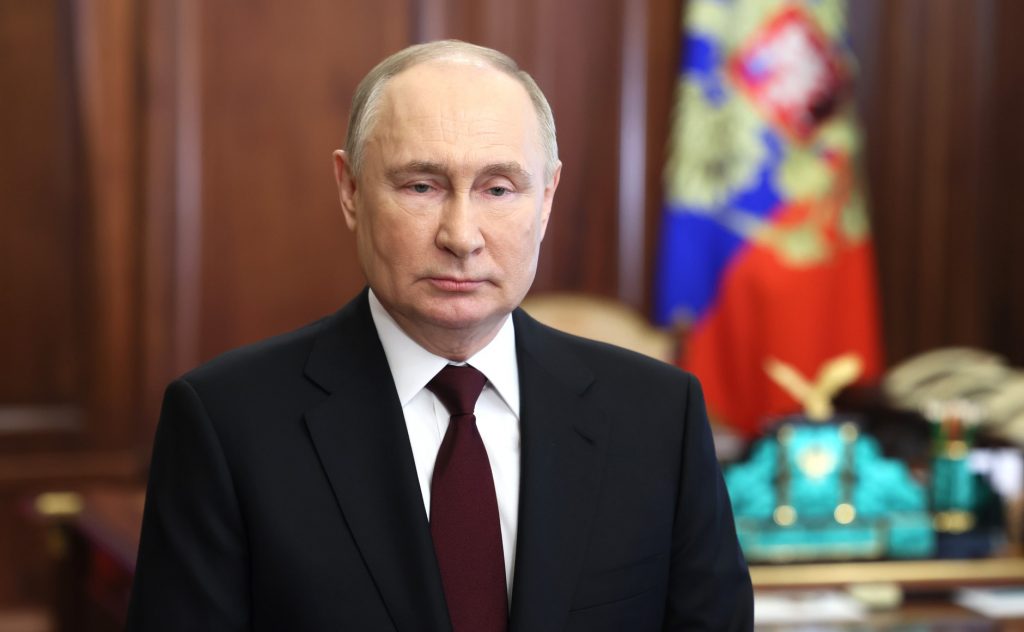
On Thursday, March 14, Vladimir Putin addressed citizens of the Russian Federation on the occasion of the start of voting in the presidential elections. Let us remind you that this year, voting took place for three days—from March 15 to 17. In his address, Putin emphasised “democracy,” which, in his opinion, is determined by the presence of regular elections.
Key theses:
- “Tomorrow, March 15, polling stations will open throughout our vast country: a three-day voting period for the election of the President of Russia will begin. They are being held in Russia for the eighth time, which shows the inviolability of one of the basic principles of a democratic state – regularity of elections. Their results will affect the country’s development in the coming years.”
- “I would like to emphasise that the people are the only power source in our country. This key legal provision is enshrined in the Constitution. Its main meaning is that only you, citizens of Russia, determine the fate of the Fatherland. You have not just to cast your vote but firmly declare your will and aspirations, your involvement in the further development of Russia because elections are a step into the future.”
- “I am convinced that you understand what a difficult period our country is going through now, what difficult challenges we face in almost all areas. And to continue to respond to them with dignity and successfully overcome difficulties, we need to be united and self-confident.”
- “We have already proven that we know how to be together, defending Russia’s freedom, sovereignty and security, defending our values, traditions, history and culture, acting in conscience and truth, in justice. We have our views on how and what kind of country we should build and what plans we should implement. And today, it is critically important not to deviate from this path, to achieve what is planned, to achieve the large-scale goals that have been set.”
- “It is necessary to reaffirm our unity and determination to move forward together. Each of your voices is valuable and significant. Therefore, I urge you to exercise your right to vote in the next three days. Our country is large, and polling stations will open everywhere —in every city, town, village.”
- “All of us, the multinational people of Russia, are one big family! We worry, worry, and care about our native country. We want her to be prosperous, strong, free and prosperous, so that the level and quality of life improve. So it will be! We will do everything exactly the way we want.”
Outcomes and outlook:
Putin’s statement was a “ritual”: it was supposed to kickstart the voting process. In any case, the statement is significant: Putin continues to insist that Russia is a democratic state (on a formal basis: there are elections in Russia). In this sense, a stone was thrown into the garden of Ukraine, whose leadership insists that there can be no elections during martial law. Putin’s statement is motivational, with an attempt to call for unity. However, too few “anchors” in it could bring this document into the category of those that seriously influence the expression of the will of citizens.
- Meeting with members of the Government
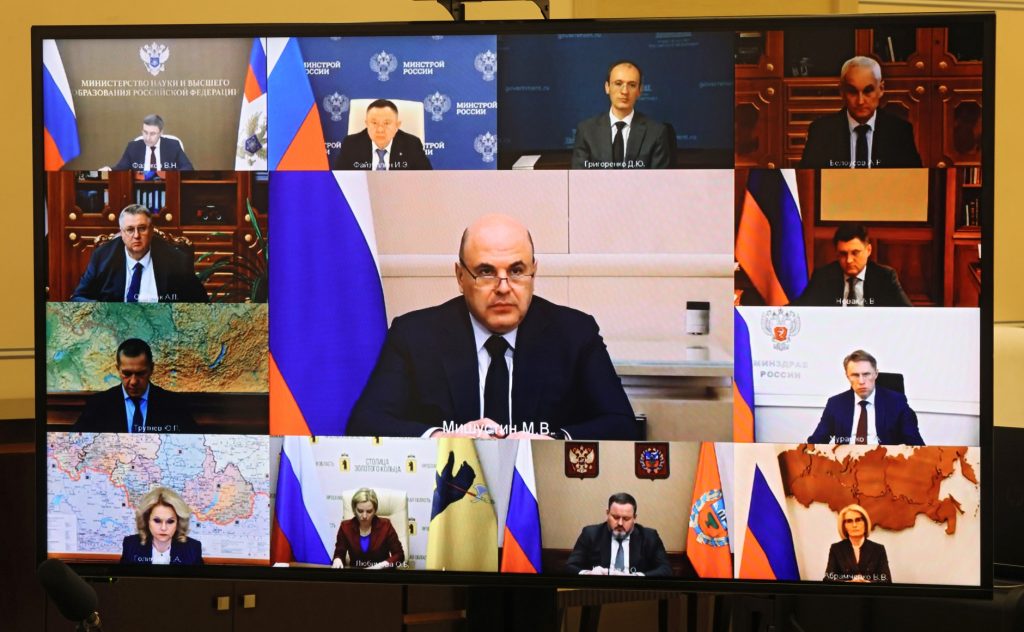
On Thursday, March 14, Vladimir Putin held a meeting via videoconference with members of the Russian government. The main topic for discussion was the implementation of the program points announced in the President’s Address to the Federal Assembly.
Key theses:
- Putin: “You know that in February, our price growth is decreasing, inflation is stabilising – in February, it was 0.7 per cent; in the first couple of weeks of this month, inflation went to zero. It is clear that in weekly terms, this is all very approximate; everything is volatile, but nevertheless, it is the way it is. Economic growth in January was 4.6 per cent. GDP growth over the past year was 3.6 [per cent], generally very satisfactory, a good figure; in January, it was 4.6 [per cent]; it is also clear that this is only the beginning of the year. If I’m wrong about something, my colleagues will correct me, but the trends that we are seeing now give reason to believe that the plans proposed as part of the Address to the Federal Assembly are quite feasible. And this work must be started immediately.”
- Putin: “I propose to hold a joint meeting of the State Council and the Council for Strategic Development and National Projects in May of this year with the participation of regional heads, where, I think, it would be appropriate to discuss how to solve the assigned tasks, as they say, on the ground, concerning specific subjects of the Federation. What additional tools are needed to achieve the practical, tangible results that Russian citizens expect?”
- Belousov (First Deputy Prime Minister): “Today, as you know, the Russian economy ranks fifth in gross domestic product at purchasing power parity. Calculations show that Russia could become the fourth largest economy in the world, ahead of Japan, provided that it maintains sustainable growth of at least 2 per cent per year, with a gradual acceleration to 3 per cent by the end of the period. Over the period until 2030, the country’s GDP needs to be increased by about 20 per cent.”
- Belousov: “The first is increasing labour productivity, something discussed in the Address. In conditions of personnel shortages, this is critically important. In addition, only through a high level of labour productivity is it possible to ensure sustainable growth in real wages in the economy, and therefore consumer demand for Russian goods and services.”
- Belousov: “The second mechanism is to ensure investment growth. Today, investment activity is at a high level, reflecting the scale of the ongoing structural restructuring of the economy. Based on data for the past year, investment in fixed capital increased by 9.8 per cent, almost three times faster than GDP growth. The goal is to maintain rapid investment growth throughout 2025–2030.”
- Belousov: “The third mechanism is to support and increase non-resource, non-energy exports in the markets of friendly countries. In accordance with the Address, the volume of non-resource, non-energy exports should increase by at least two-thirds, and exports of agricultural products by one and a half times. This is a very high, ambitious goal.”
- Belousov: “The fourth mechanism for accelerating growth is support for small and medium-sized businesses. By 2030, the goal is to increase SME revenue per employee by at least 23 per cent compared to 2023. This is 1.2 times higher than the gross domestic product growth rate.”
- Belousov: “And finally, the fifth mechanism is the implementation of import substitution projects. Of course, import substitution is not an end in itself, but within reasonable limits, it solves two problems: economic sovereignty and stimulating growth.”
- Golikova (Deputy Government Chairman): “Now the national project has a long and active life. Its key goal is to increase life expectancy to 78 years by 2030. Now this milestone has been reached by three regions of the country – the Republics of Dagestan and Ingushetia and the city of Moscow. As part of the national project, we will continue modernising primary care. This is the most popular project among the population, as it concerns every resident of our country. Every year, we record over 1 billion visits to primary care institutions.”
- Golikova: “We assume that, taking into account the additional budgetary allocations you have identified, by the end of 2030, more than 4 thousand healthcare facilities will be created, including more than 100 emergency departments built in inter-district centres with a population of more than 300 thousand people, 450 modular antenatal clinics built, “More than 10 thousand facilities have been renovated and equipped, including 1.5 thousand children’s hospitals and perinatal centres.”
- Golikova: “Starting from 2025, we will additionally carry out targeted construction of new schools and kindergartens in individual localities. This need is associated with historical disproportions in location and significant deterioration of individual objects, as well as with decisions made on the targeted development of several territories. In six years, we plan to build 150 schools and 110 kindergartens within the regions.”
- Golikova: “I would like to say right away that as a result of your decision, the initiative received a very positive response in the regions. We will actively interact with colleagues and methodically support this work. According to preliminary estimates, by the end of 2030, we plan to attract about 9 thousand specialists to the industry, significantly reducing the existing personnel shortage.”
- Chernyshenko (Deputy Government Chairman): “Now, as we reported, campuses are being designed and built in 17 regions – from Kaliningrad to Yuzhno-Sakhalinsk. This is more than 2,300 thousand square meters of advanced infrastructure for study, science, technological entrepreneurship, creativity, sports and comfortable accommodation for students, teachers, and scientists.”
- Chernyshenko: “In your Address to the Federal Assembly, you also instructed to launch a large-scale program to overhaul 800 university dormitories. Thanks to your support, 124 billion rubles will be allocated for these purposes, that is, approximately 20 billion rubles annually, which will allow for the modernisation of existing infrastructure, the residential infrastructure of universities, that is, to make comprehensive repairs and solve not just some specific problems, but to update the entire infrastructure. We will be able to renovate at least 140 dormitories annually, meaning approximately 49 thousand more comfortable places for students annually.”
- Manturov (Minister of Industry and Trade): “We will continue to work in key areas within the framework of existing government programs and systemic government support measures. On your instructions, we are converting the development of the most significant economic sectors into the format of national projects.”
- Manturov: “Another priority you outlined in the next six-year period is increasing the economic connectivity of our country. The instruments of our two sectoral state programs are aimed at this. We are talking about providing civil aviation with domestic aircraft and helicopters and technological sovereignty in shipbuilding to continue the large-scale renewal of the passenger, cargo and fishing fleet.”
- Manturov: “Taking into account your decisions, we are forming the necessary financial resources for the accelerated expansion of competencies, bearing in mind the additional capitalisation of the Industrial Development Fund, which will ensure the implementation of at least 500 additional new projects by 2030. Using the mechanism of the cluster investment platform, we will be able to attract about another 2 trillion rubles of private investment into the industry, and through industrial mortgages, we will be able to bring about 10 million square meters of production space into economic circulation. This, among other things, expands access for small and medium-sized businesses to the infrastructure of industrial parks.”
- Putin: “What would you like to draw attention to? You have just mentioned some areas in which we have good competencies and we even have some groundwork that we can be proud of and count on in the future. For example, the nuclear power plant you mentioned for operation in space. Funding needs to be done on time. If we continue to treat this way, it doesn’t concern you personally; of course, it concerns us in general, but we need to determine priorities.”
Outcomes and outlook:
A significant meeting aimed at showing the readiness of the Russian government to implement everything that Vladimir Putin announced in his Address to the Federal Assembly. In essence, this meeting responded to sceptics who said the Address was too populist. Government members were required to confirm they were ready to do everything that Putin stated. Also, based on the meeting results, the impression was that Putin was quite determined to replace some government members – this could be felt from the tone of the conversation and the remarks the Russian president made towards certain ministers.
- Meeting with permanent members of the Security Council
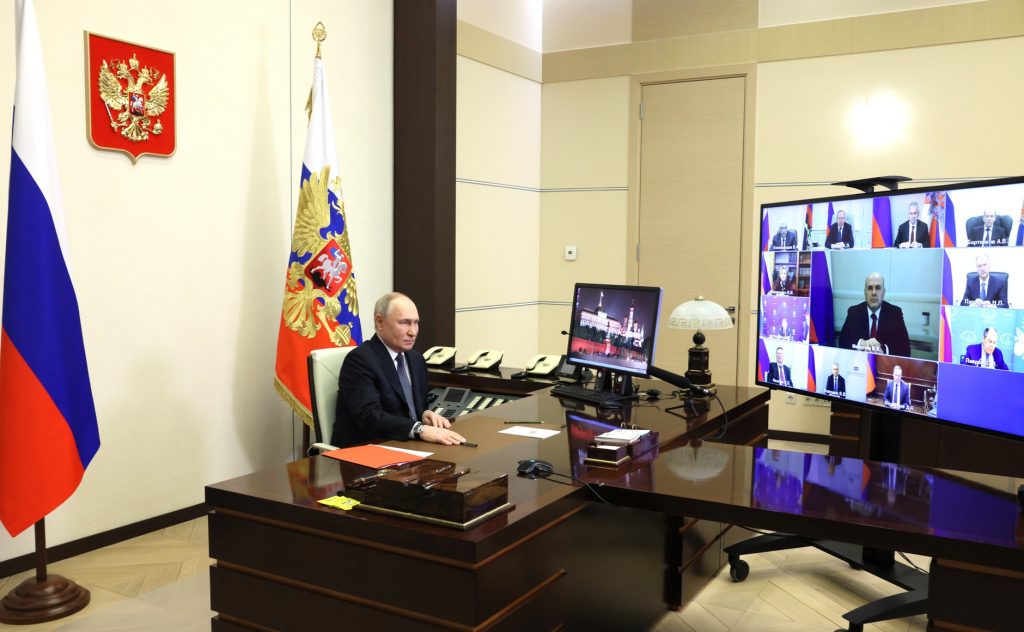
On Friday, March 15, Vladimir Putin held an operational meeting with permanent members of the Security Council via videoconference. The main topic of discussion was the situation surrounding the presidential elections. In particular, the situation in the Belgorod and Kursk regions was discussed, where regular shelling took place throughout the week, and attempts were made to capture populated areas by combat groups of the Russian Volunteer Corps.
The meeting was attended by Prime Minister Mikhail Mishustin, Chairman of the Federation Council Valentina Matvienko, Chairman of the State Duma Vyacheslav Volodin, Chief of the Presidential Administration Anton Vaino, Secretary of the Security Council Nikolai Patrushev, Minister of Internal Affairs Vladimir Kolokoltsev, Minister of Foreign Affairs Sergei Lavrov, Minister of Defense Sergei Shoigu, Director of the Federal Security Service Alexander Bortnikov, Director of the Foreign Intelligence Service Sergei Naryshkin, Special Representative of the President on environmental issues, ecology and transport Sergei Ivanov.
Key theses:
- Putin: “To disrupt the voting process, to intimidate people, at least in the regions bordering Ukraine, the Kyiv neo-Nazi regime has conceived and is trying to carry out several criminal demonstrative armed actions. First, this is striking civilian settlements on Russian territory.”
- Putin: “In addition, from March 12 of this year to the present, the enemy, using mainly special forces, foreign mercenaries and support forces of the Armed Forces of Ukraine, has made several attempts to exit and gain a foothold on our territory. A whole series of sabotage terrorist attacks were carried out: four in the Belgorod and one in the Kursk direction – to enter and consolidate on Russian territory.”
- Putin: “The forces and means used by the enemy amounted to over 2.5 thousand personnel, 35 tanks, and about 40 armoured combat vehicles. The enemy had no success in any of the directions. Everywhere he was thrown back and retreated, or rather, fled with heavy losses: among personnel—about 60 per cent, in armoured vehicles—over 50 per cent.”
- Putin: “Another possible goal of actions of this kind is to divert the attention of their people and the public of other countries, from which the Kyiv regime is trying to beg for money humiliatingly and all kinds of handouts, to divert attention from the real state of affairs on the line of combat contact, where the Russian Armed Forces confidently hold the initiative and step by step, showing courage and heroism, achieve the solution to the combat missions assigned to them.”
- Putin: “Thus creating the necessary, basic conditions for ensuring the security of Russia, the internal political stability of our state, and ultimately for achieving all the goals of national development, for the future of our Motherland, which, despite any attempts of our enemies and ill-wishers, will, without a doubt, be reliably provided for.”
Outcomes and outlook:
The main topic of the meeting with members of the Security Council of the Russian Federation was the attacks on Russian territory by Ukraine, launched from March 12 to 14. In Moscow, they were assessed as aimed at disrupting the elections in the Russian Federation. However, Putin, at a meeting with members of the Security Council, as well as during a meeting with the military on March 17, stated the need to maximise the strengthening of the border and also once again repeated the thesis about the need to create a “sanitary zone”, meaning the obvious future offensive on the territory of Ukraine in Chernihiv, Sumy and Kharkiv regions. According to available information, the goal is to advance 30–50 km deep into Ukraine along the state border.
- Appointment of Boris Kovalchuk as deputy head of the control department of the Presidential Administration
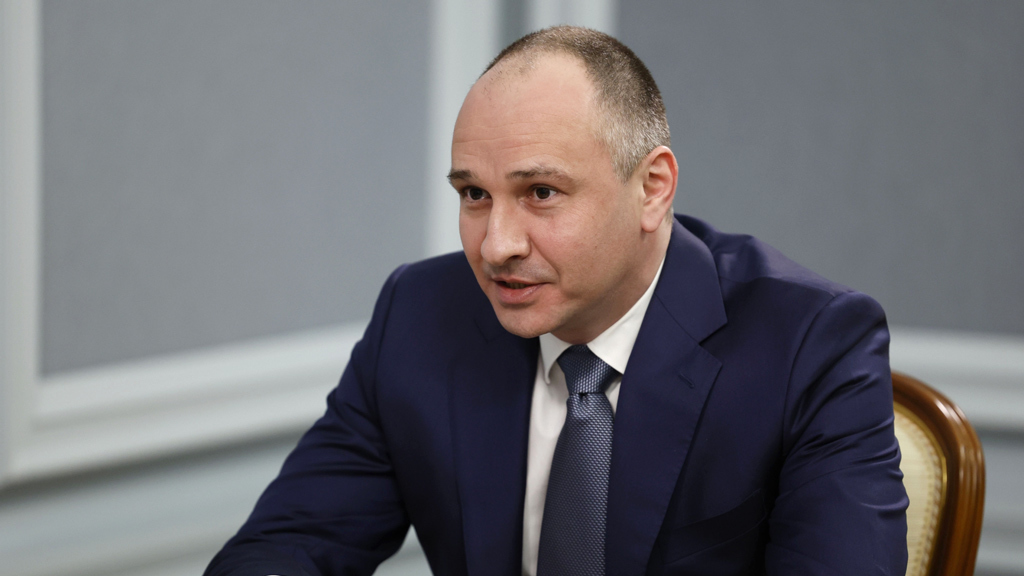
On Friday, March 15, information appeared about the appointment of Boris Kovalchuk (son of Yuri Kovalchuk) as deputy head of the control department of the President of the Russian Federation. Later, this information was officially confirmed by Putin’s press secretary, Dmitry Peskov.
Before his appointment to the Presidential Administration, Boris Kovalchuk headed the board of directors of PJSC Inter RAO (international energy trade, engineering services, design and construction of energy facilities). Instead, Sergei Dregval, who had previously been the vice-governor of St. Petersburg (oversaw the energy sector), was appointed to this position.
Outcomes and outlook:
This appointment should be considered as a serious strengthening of the position of the Kovalchuk clan in Russian politics. The appointment of the younger Kovalchuk as deputy head of the control department of the Administration of the President of the Russian Federation (General Dmitry Shalkov) opens up not only the prospect of heading the department itself soon but also actively influencing personnel appointments and dismissals. The Kovalchuks can control all internal politics in the country (especially considering the closeness to the clan of the First Deputy Head of the Presidential Administration of the Russian Federation, Sergei Kiriyenko). In connection with the new appointment, there are rumours in Russia about the possible appointment of Shalkov to one of the key positions in the security bloc (possibly the director of the FSB instead of Alexander Bortnikov).
- Elections of the President of the Russian Federation
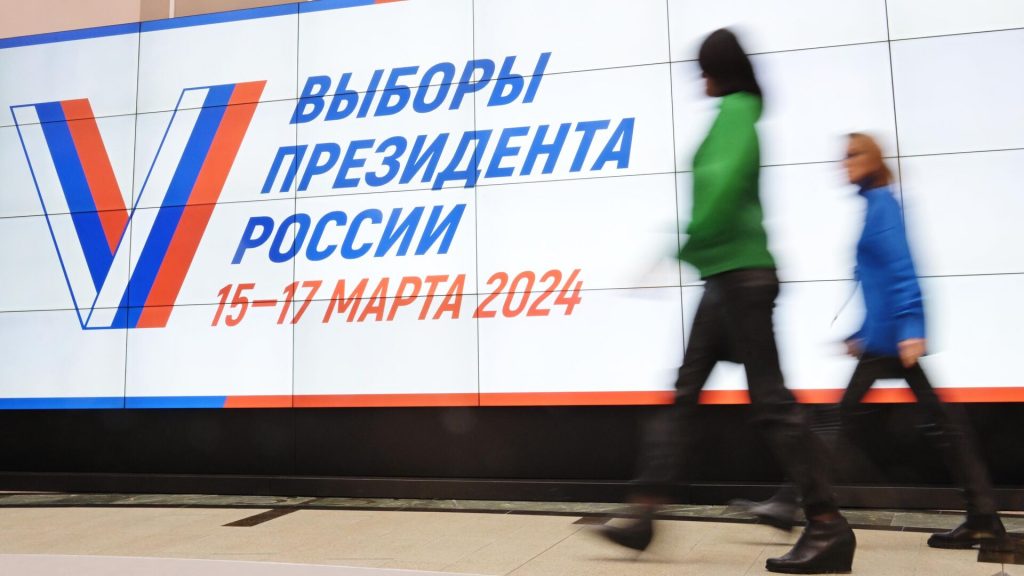
On Friday, March 15, polling stations opened in Russia for voting in the presidential elections. According to new changes to the Constitution of the Russian Federation, voting lasts three days (this year from March 15 to 17). At the same time, in the temporarily occupied territories of Ukraine, which, according to the Constitution of the Russian Federation, are part of Russia (Donetsk, Lugansk, Zaporizhzhia and Kherson regions), voting began before March 15. This election campaign took place in Russia against the backdrop of the so-called “SMO”, as well as the subsequent massive Western sanctions, of which there are more than 15 thousand over the past ten years.
The elections themselves are relatively nominal since their result was predicted long before the voting began. Given the virtual absence of opposition and only a technical candidate being allowed to participate in the elections, Putin’s success is clearly beyond doubt. However, it is essential to note that despite Western pressure, his support among a significant part of the population remains relatively high (in this context, it can be argued that the principle of the class state, which is Russia, as well as high-quality propaganda, remain the main factors for Putin’s high support).
Already on the first day of voting, many attempts to disrupt the voting were recorded at polling stations in different regions of Russia: voters poured paint and green paint on ballots and also set polling stations on fire. Later, many of them stated that they acted on the instructions of the Ukrainian special services. This situation is unlikely to impact the final voting results seriously. Moreover, according to official data, only 37 such cases were recorded.
At the same time, as of 22:00 (Central European time), according to preliminary exit poll results, Vladimir Putin received about 87% of the vote, demonstrating the highest result of his entire presidency. The remaining candidates scored about 4% each. Pope Francis was one of the first to congratulate Putin.
Outcomes and outlook:
The most significant event of the year in the Russian Federation took place. No fundamental changes about the Kremlin’s foreign policy are expected in Putin’s new presidential term. However, soon, we will be able to observe profound personnel changes in Putin’s inner circle. Ascolta is preparing a particular analytical article on the election results. The campaign’s progress will also be separately analysed with a clear study of technologies, methods and cycles.
- Shelling of Russian territory and attempts to capture border settlements
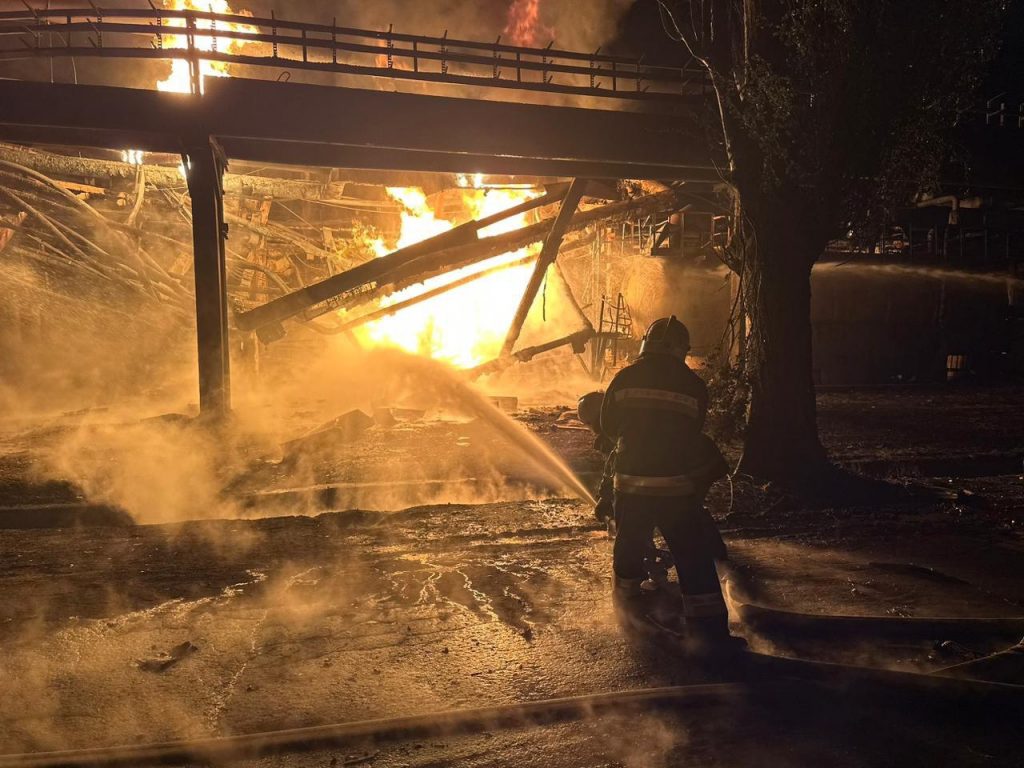
For almost the entire week, Russian territory was subjected to regular rocket attacks and UAV raids from Ukraine. According to official data, nearly all large oil refineries located in the western regions of Russia suffered significant damage. Also, on the night of Wednesday, March 13, Russian volunteers from the so-called “Russian Volunteer Corps” (RDK) fighting on the side of Ukraine made several attempts to capture border settlements in the Belgorod region. Belgorod itself was subject to regular rocket attacks, which led to the death of residents and the destruction of several buildings. As of Saturday, March 14, representatives of the RDK announced that they had captured more than twenty Russian military personnel, inviting the governor of the Belgorod region to come to a meeting with them to exchange prisoners.
Outcomes and outlook:
The most strange and senseless military operation resulted in heavy losses for the participants (which, in particular, Putin announced). The actions of the attackers were dictated by the desire to disrupt (at least partially) the presidential elections in Russia, as well as to show a “picture” for the Western media – they say that in Russia, there is natural resistance to Putin and his power. The initiator of this action is one of the opposition centres (Ilya Ponomarev), who believes that recently, unjustifiably, much attention has been paid to his political rival, Yulia Navalnaya. Thus, there was an attempt to “reformat” the information space. But such an operation could have far-reaching consequences – up to the operation announced by Putin to create a “cordon sanitaire” on the northern border of Ukraine and Russia. Operations of this kind border on outright adventurism and have no strategic significance.
- Press conference of Vladimir Putin on the results of the presidential elections
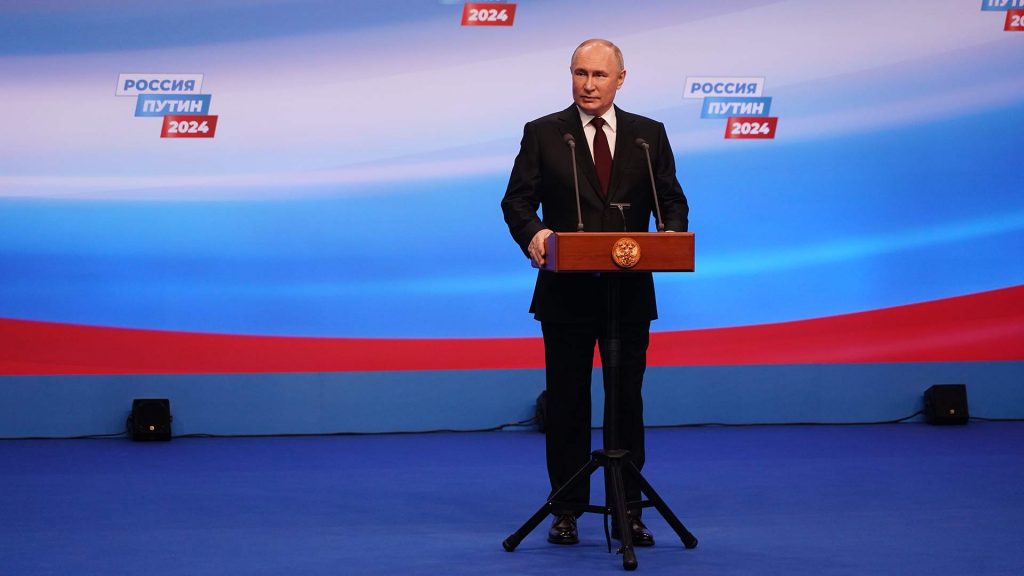
On Sunday, March 17, after the polling stations closed and the first exit poll results were published, according to which Vladimir Putin received more than 87% of the votes, the Russian president held a press conference. During this conference, he spoke about his priorities during the next presidential term and answered a number of questions about domestic and foreign policy.
Key theses:
- “I dreamed of a strong, independent, sovereign Russia. And I hope the voting results will allow us all, together with the Russian people, to achieve these goals.”
- “A few days before Mr. Navalny passed away, some people told me that there was an idea to exchange Mr. Navalny for some people who are in prison in Western countries. The person who spoke to me had not finished his sentence, and I already said: “I agree.” But, unfortunately, what happened happened. Only on one condition, I said that we would change him, and that he should not return, let him sit there. But it happens; nothing can be done about it.”
- “Kyiv has concentrated up to 5 thousand people in the border areas with Russia and throws them like meat into assaults. If they like it that way, then in principle, we are happy with it; it’s such a meat grinder for them.”
- “Given the attacks on Belgorod, Russia may be forced to create a certain sanitary zone in the adjacent territories of Ukraine, which will be quite difficult to overcome using the weapons that the enemy uses, primarily, of course, foreign-made.”
- “We are for peace negotiations, but not because the enemy is running out of ammunition. And if they seriously, in the long term, want to build peaceful, good neighbourly relations between the two states. And don’t pause rearmament for 1.5-2 years.”
- “I think anything is possible in the modern world[direct conflict with NATO]. But I say, and this is clear to everyone, that this will be one step away from a full-scale third-world war. I think it’s unlikely that anyone is interested in this.”
- “The Russian military is already conducting little more than an active defence; the initiative belongs to them, and the progress is constant – gradually, carefully, but every day.”
- “The current team is acting very effectively – the Cabinet of Ministers, the Central Bank, and the administration, personnel decisions will be made calmly, in a working, friendly manner.”
- “[About the West’s reaction to the elections in the Russian Federation] What did you want them to stand up and applaud? They are fighting us and by armed means.” A direct conflict between Russia and NATO is not excluded in the future, although no one is interested.”
- “First of all, we need to solve problems within the framework of a special operation and strengthen our defence capabilities and armed forces. The main tasks for the country’s development were laid down in the recent message to the Federal Assembly.”
Outcomes and outlook:
Putin emerged as the winner. This is his first speech after the elections and, by and large, it shows two trends: Russia is ready to continue hostilities against Ukraine, and personnel changes are coming in Russia, but they will not be serious – most likely, there will be a replacement of people in several departments, and There will be purges at the middle level of the executive branch. Some ministers and governors will change, perhaps a few elderly people around Putin. Still, the team’s core will remain, as will the traditional division into “Kremlin towers” while maintaining a balance between them. But a new generation of Russians will be called into politics – first of all, those who went through the war in Ukraine.

